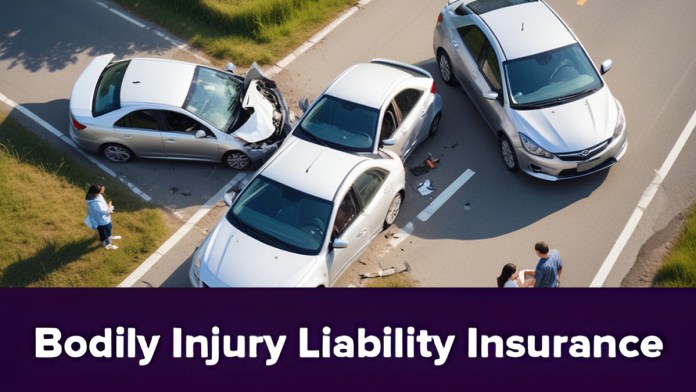Having substantial knowledge about bodily injury liability insurance is essential for every driver. If you find yourself in a situation whereby you’re at fault for an accident, bodily injury liability insurance will help cover the medical expenses of others involved in the accident, ultimately helping to offload the financial burden that comes with catering for others medical costs.

Bodily injury liability insurance is one of the top components of auto insurance policies and helps to provide crucial financial protection against accidents where you’re found guilty of injuring others.
In this article, you will be enlightened on what bodily injury liability coverage is and how it works, including what it covers and what it doesn’t. Ensure you read between lines so you don’t miss out on valid information about this insurance policy.
What is Bodily Injury Liability Insurance?
Bodily injury liability coverage, also known as BI, is a part of your insurance that covers the cost of injuries inflicted on others if you’re at fault for an accident. This is one of the coverages required by various states; individuals must purchase bodily injury liability coverage alongside their car insurance policies.
Bodily injury liability coverage also helps to pay for legal fees and counsel in case you’re sued for damages.
What Does Bodily Injury Liability Insurance Cover?
- Medical expenses, such as emergency care services, hospital fees, ongoing care costs, and another related fee.
- Legal fees and legal counsel.
- Loss of income.
- Pain and suffering.
- Funeral costs.
What It Does Not Cover?
Majorly, there are three expenses bodily injury liability insurance won’t cover, which include;
• Your medical costs
Bodily injury liability coverage involves the medical costs of other people affected by the accident. While it helps to cover the medical expenses of people who sustained injuries as a result of the accident, it does not cover your personal medical costs.
Individuals who want coverage for their own medical costs may be able to purchase personal injury protection or medical payment coverage. The availability of this depends on the state you reside in.
• Property damage
Bodily injury liability insurance does not cover property damage. In a case where you cause a crash that damages another driver’s vehicle or someone else’s property, like a store, fence, or house, you can refer to the property damage portion of liability car insurance, which would be able to cater for the costs associated with damaged properties.
• Damage to your own vehicle
In addition, bodily injury liability coverage does not cover damage to your own vehicle. Individuals will need to purchase collision insurance if they want coverage for car repairs as a result of damages caused by an accident.
How Much Does Bodily Injury Liability Coverage Cost?
According to the National Association of Insurance Commissions, the average cost of liability insurance is $650.35 a year. This amount covers the costs associated with bodily injury and property damage.
Also, the cost of bodily injury liability coverage depends on the factors outlined below:
- Driving history.
- Place of residence.
- Type of car you drive.
- Coverage limits.
- Policy limits.
- Claim history.
FAQs
What are the typical coverage limits?
Bodily injury liability limits are $25,000/$50,000 per person and $100,000/$300,000 per accident. Although higher limits provide more protection, they are usually on the high side.
When would I need to use my bodily injury liability coverage?
If you cause an accident that is unsuitable for a passenger, pedestrian, cyclist, or another driver, you will have to use your bodily injury liability coverage. It will help to offset the bills associated with medical bills and other damages based on your coverage limits.
Why is bodily injury liability coverage required?
There are states that mandate drivers to carry a minimum amount of bodily injury liability coverage. If your state requires you to get bodily liability insurance, then you should.
This serves as protection for other drivers plying the road in case you cause an accident that results in bodily injuries. Summarily, bodily injury liability coverage helps to ensure that affected drivers or people get compensation for their injuries.



